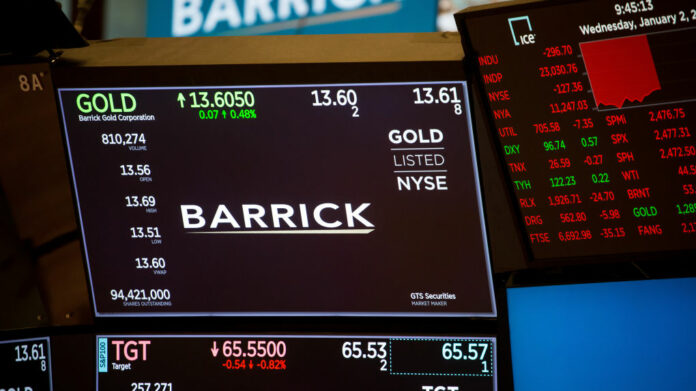
BARRICK Gold has agreed with Pakistan and Balochistan, a province of the South Asian country to relaunch the Reko Diq copper-gold project – a development that will expand the scope of the gold firm’s operational footprint.
Once a framework agreement with the Pakistani partners has been closed, Barrick will set about updating the project’s 2010 feasibility and 2011 expansion prefeasibility studies. A conventional truck-and-shovel open pit mine was envisaged producing high quality copper-gold concentrate.
Assuming no major hiccoughs, Reqo Dik could be in production in about six years.
The reconstituted project will be held 50% by Barrick and 50% by Pakistan’s stakeholders. Of the Pakistani stakeholders, there will be a 10% free-carried, non-contributing share held by the government of Balochistan.
An additional 15% of the project will be held by a special purpose company owned by the government of Balochistan, and 25% will be owned by other federal state-owned enterprises. A separate agreement provides for Barrick’s partner Antofagasta to be replaced in the project by the Pakistani parties, said Barrick.
“In addition to local employment and skills development, local procurement, infrastructure upgrades and improved medical and education systems, Reko Diq could also be the springboard for further exploration and other mineral discoveries along the highly prospective Tethyan Metallogenic Belt,” said Mark Bristow, CEO of Barrick.
Commenting in the firm’s annual report published last week, Bristow also said that Barrick intennded to expand its global footprint to include Asia Pacific including Japan where exploration permits had been acquired.
“We are also investigating projects across the Nubian and Arabian Shields in North Africa and the Middle East,” said Bristow.
In Latin America, Barrick was testing a portfolio of targets on the El Indio belt along the border between Argentina and Chile. “We have also added ground in Peru and started fieldwork on new projects in Guyana and Suriname,” said Bristow.
Barrick was also “under-invested” in Canada. “A significant exploration portfolio has been secured in the country’s Uchi Belt and the team is also looking at other opportunities in the country,” he said.










